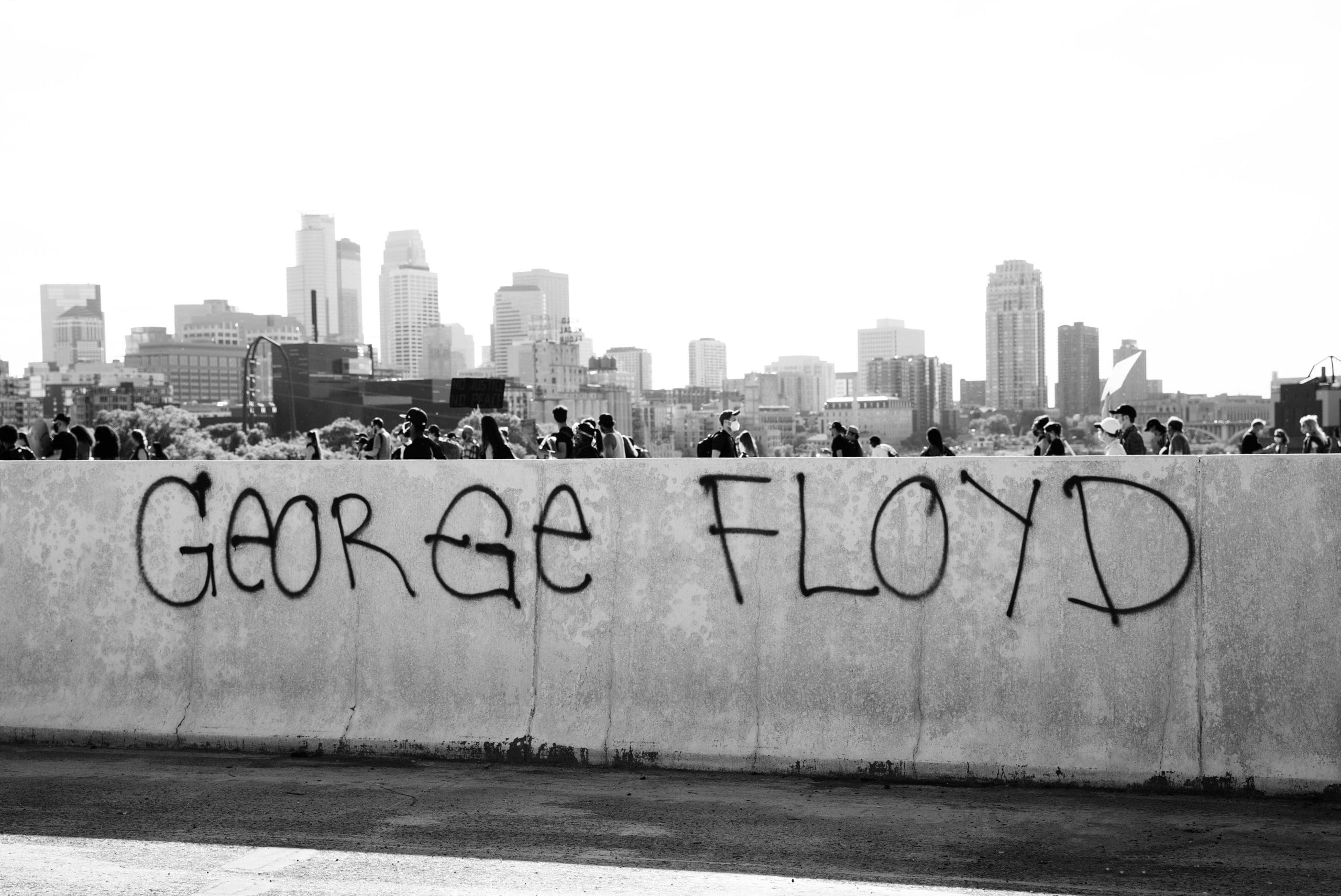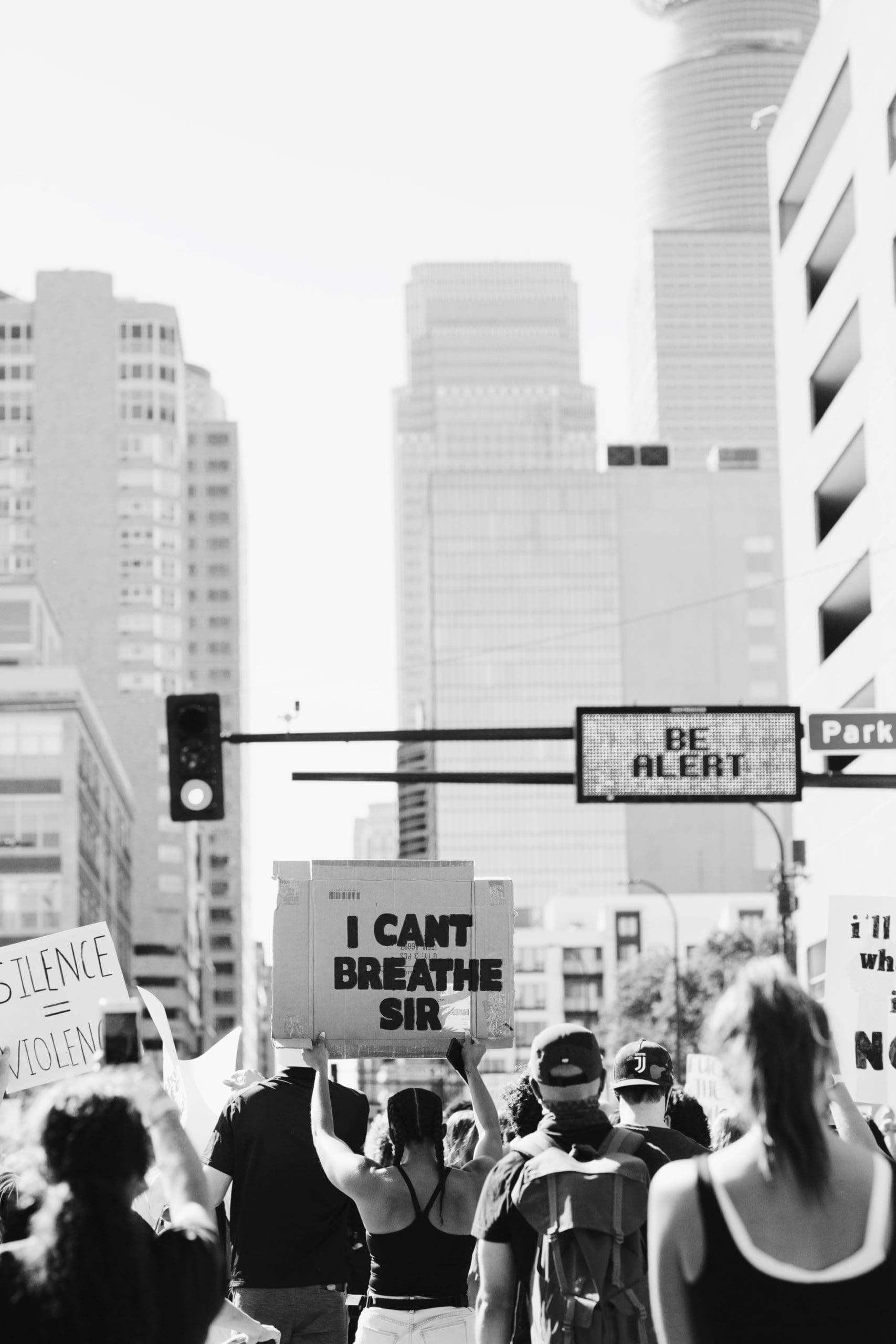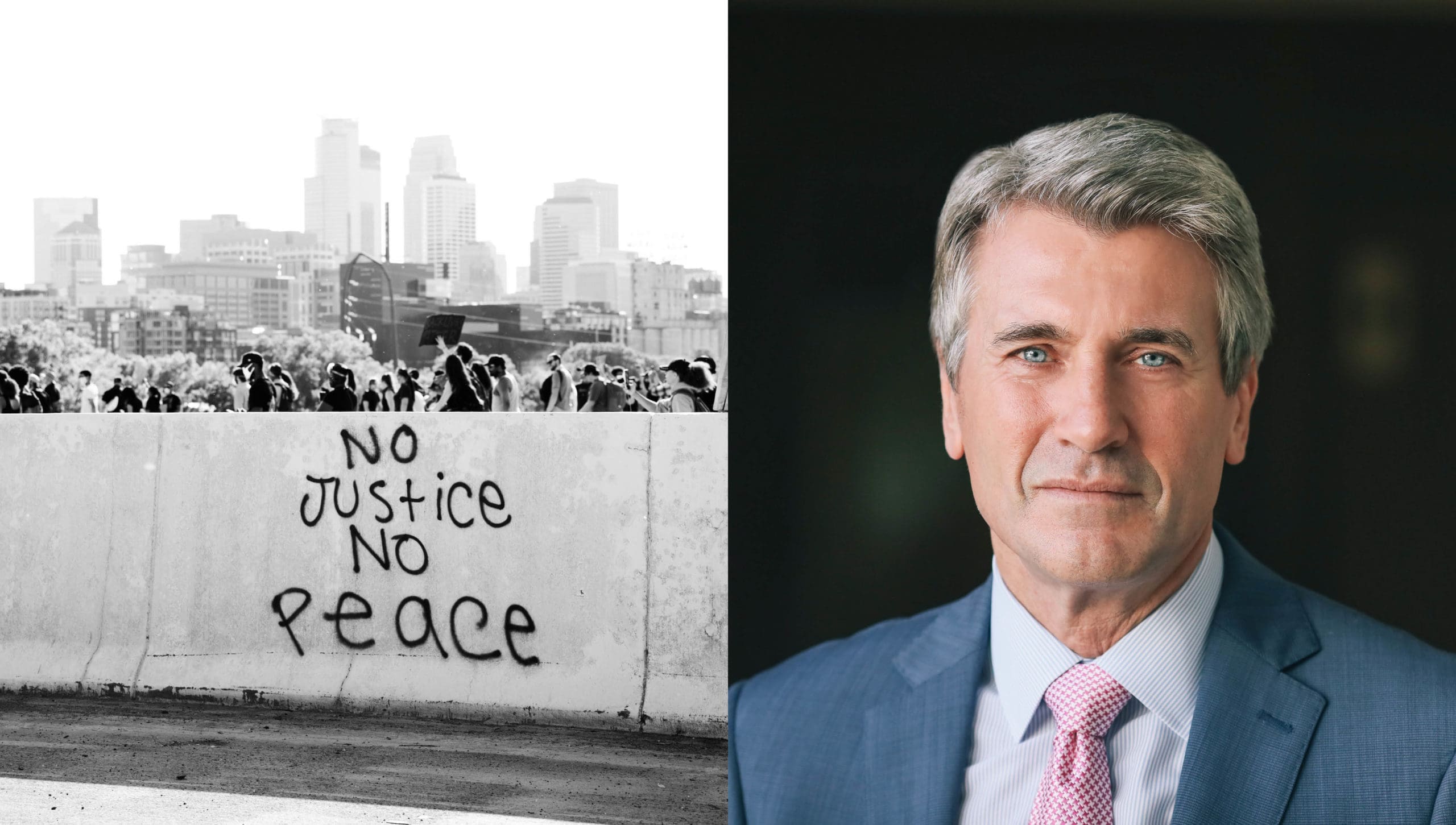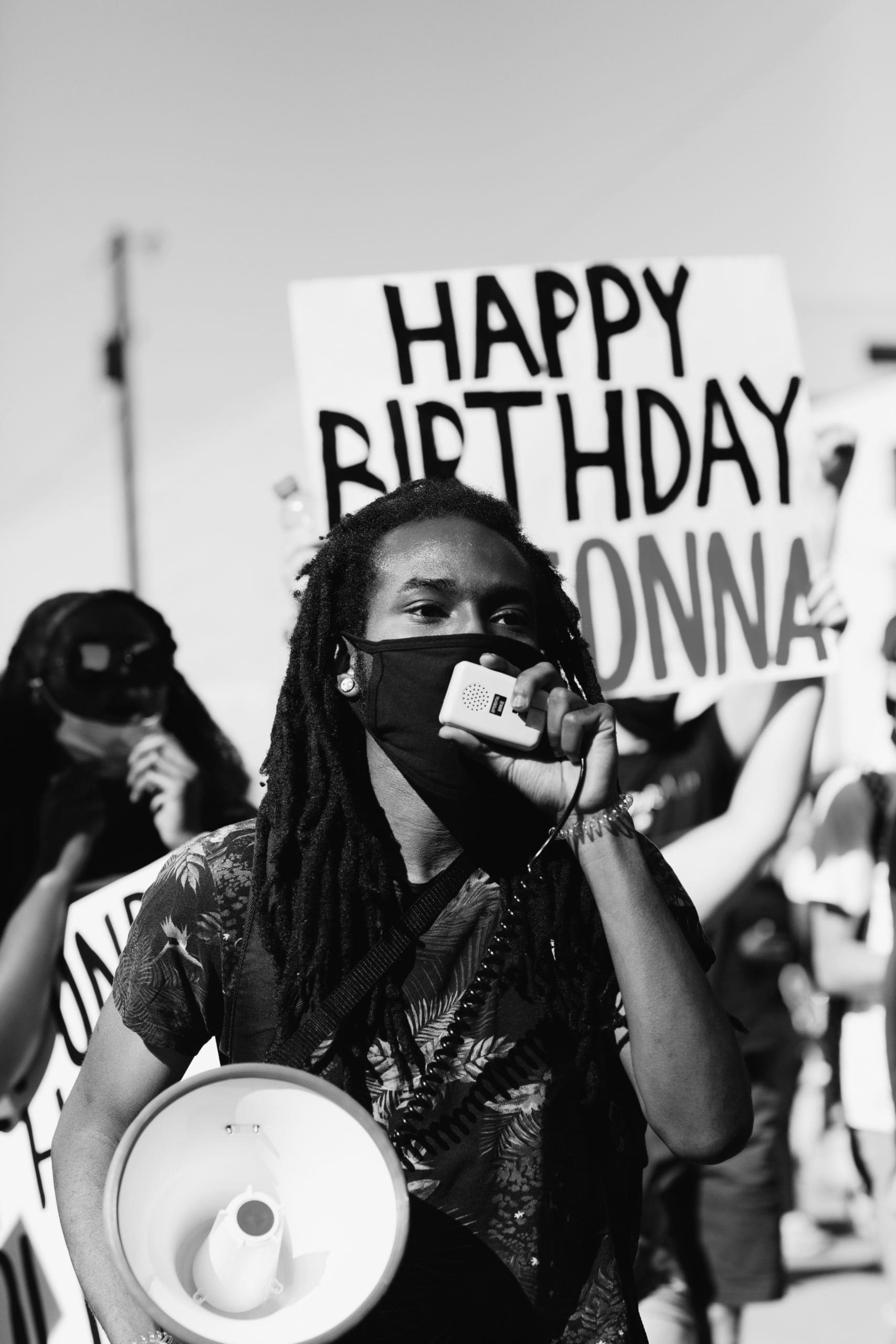One month after George Floyd’s killing, we asked R.T. Rybak to reflect on that tragedy and to expound his vision for the future of Minneapolis. His is an irrefutably important and influential voice in our community. After all, Rybak served as mayor for 12 years, revered as a tireless cheerleader for the City of Lakes. Although he left public office in 2013 (after one last crowd surf), his passion for Minneapolis certainly hasn’t wavered. Today, he’s the president and CEO of the Minneapolis Foundation, a community foundation that brings together people, ideas and resources to improve lives and spark positive change. In this exclusive interview, Rybak gets real about what change needs to happen at the local level, how we as Minnesotans all play a role and why he is hopeful that Minneapolis is on the brink of greatness.

Photography by Camille Lizama
As the former mayor of Minneapolis, what was it like for you to watch George Floyd’s killing and the resulting uprising?
I was nearly paralyzed with grief, never having seen my own home burn but feeling as close to it as I possibly could. To have the city I love that much burn in this way made me, especially in those early days, do a gut check on an entire career trying to make this a better, more equitable place. That was deeply painful in a way that I can’t even describe, and it still is.
But I believe that’s part of what we need to go through as a community. And we are on our way to becoming a better community because we’re looking in the mirror in a way that we’ve never done before. I was only able to function in my deep, deep grief because there was so much that had to be done.
Since then, I’ve been working almost nonstop trying to use my team and my position at the foundation to deliver relief to businesses in need, to do a lot of tangible rebuilding — especially when it comes to reforming a police department — and to get at the really deep culture issues behind this. There’s so much ability to solve this that, for the first time, I’m feeling hopeful.

You wrote on Politico that your efforts as mayor to “change a police department and its culture failed badly.” Can you expand upon that?
I worked on police reform for my entire 12 years, starting with my second week in office when I tried to fire the police chief and bring in the first Black police chief of Minneapolis, through different chiefs with their own reform agendas, to the end of my time as mayor. I worked to improve officer accountability. I tried desperately to hire a more diverse pool of officers and get them trained better. I spent many, many nights out at crime scenes trying to build rapport between the police and the community. I don’t regret how hard I tried. What I regret is that I didn’t know more. Some things I should’ve known; others I’ve learned since.
Shortly after I left the mayor’s office, I became familiar with incredible research from the University of Chicago that outlines in very specific terms how a police officer goes wrong and more importantly what early interventions can turn a small infraction into a learning moment instead of the first step toward a career of doing some really bad things. Then I got involved with a group that took that research and built systems into the HR departments of police forces so that they could in real time identify officers moving in the wrong direction and intervene early. It’s now in 70 police departments across the United States.
I’ve gotten to know a lot of police officers, and it’s an unbelievably difficult job. People ask me why cops would support extreme leadership in the police union, and I explain that sometimes when really complex issues require complex solutions, including us reflecting on our behavior, if someone comes along with a simple answer — like blaming everybody else — some people will go along with it. If someone stands behind you and says, “It’s not you; it’s everybody else. They don’t understand you, but I do,” some cops will follow that. And that leads to the kind of toxic culture that can build up around otherwise good human beings doing their job.
You wrote in the Atlantic that “no action is more important than changing toxic us-versus-them police cultures.” Can you speak more about that?
At the beginning of that article, I talk about why I would go to all these police swearing-in ceremonies: because I wanted to thank the police officers, because I could never do that job. I wanted to know who would step up and stand in between me and harm’s way to protect my life. I wanted to understand these families who were raising individuals who would put their life on the line for somebody or miss their kid’s play or soccer game or miss their anniversary because they were at a murder scene. It’s a huge, huge thing.
I’ve seen so many instances when human beings come together, and one of them is wearing a Minneapolis Police uniform and the other is protesting something horrible that took place in their neighborhood. That human interaction between police and community, when it actually works, is a beautiful thing.
My security officer for six years, Mike Kirchen, went on to start something called Bike Cops for Kids, where he drives around North Minneapolis and hands out bikes. He was named Minnesota Police Officer of the Year last year. What an inspiration. Or take the current chief; I spent a lot of time with Chief Arradondo out in neighborhoods working with community members, and he could build a rapport.
When that rapport happens, it’s beautiful. But the us-versus-them mentality is what sometimes happens after cops are thrown into crime scenes and dysfunction night after night in neighborhoods with really high crime rates, where there’s a disproportionate percentage of people of color. And a narrative starts to develop that, unintentionally and unfortunately, can build into a form of racism centered around “us versus them.”
All of a sudden, it’s not the cops versus the bad guys; it’s the cops versus the neighborhood where all this bad stuff happens that endangers their lives. And that’s when it really gets dangerous, especially when race plays a role. Undoing that is really hard, but that’s at the core of it, because when a police officer gets into that car that says “protect and serve,” they need to be able to truly protect and serve. They work for these people in the community, but their job can deteriorate, even unintentionally, into not being on the community’s side. That’s when it starts to fall apart.
What changes would you like to see at a local government level?
There are some very tangible changes. First, we need to have a better way of intervening early to get police officers who are simply not able to do this job out of policing forever. We need to change the contract so that an officer who isn’t made better by early intervention and who continues to perform badly can be kicked off the job. Too often, officers who have been fired wind up either back on our force or on another force through the whole system of the courts and the contract. And that’s completely unacceptable.
We also need to take seriously the discussion about alternatives to force in policing. There was a huge shift to militarize police that happened when I was mayor. I won the primary on 9/11, so I walked right into post-9/11 America, when federal dollars that had been used for community policing were pulled out of cities and shifted over to Homeland Security. What that meant in Minneapolis and many other places was that the funds that we once used to have community service officers build relationships were gone, and instead we had this seemingly unending checkbook for militarized weapons, tactical riot training and the like. All of which built this wall between the police and the community. Yes, there are times when force is necessary, but there are many things we know about de-escalation that really have to be built into policing.
I had a fascinating conversation recently with a peace activist who is doing nonviolent training around the world. He’s working in South Sudan and refuses to have his groups use weapons of any kind. It’s a lot more violent in South Sudan than in South Minneapolis, and yet, they’re able to navigate that without weapons. I don’t believe that we can wholly adopt that, but I believe we can do a lot to de-escalate the police response.
We also need to rethink some things, like the laws that we ask police to enforce that unintentionally arrest more people of color, especially marijuana laws. I’ll admit, when I was a kid, I sometimes smoked marijuana. I remember walking down 50th and Xerxes in Southwest Minneapolis; my friend and I would hide in the alley, have a joint then go to the Edina theater. If I had been on Broadway Avenue [in North Minneapolis] doing that and the only differences were that I was Black and in that neighborhood, I most certainly would’ve been arrested because there are more cops patrolling there.
We know that there’s disproportionate arrests of people of color. That Black version of me would’ve gone into a criminal-justice system that we know over-incarcerates people of color. If the only things you changed about me were my race and my location, I absolutely would not be where I am today. So we need to recognize that and make some necessary changes.
What Minneapolis Foundation racial equity initiatives are you most proud of?
I wanted to work with the Minneapolis Foundation because for decades it’s been on the front end of trying to close economic and racial gaps in the community. And unlike a traditional foundation, where the staff chooses where all the dollars go, individuals have donor accounts there. We work with those individuals and their families to understand their goals and move those forward. The reason I need to explain that is because there are initiatives we work on with our discretionary dollars, but we also work very closely with donors wherever they’re at on their continuum.
Among the many things we’ve done is investing heavily in building economic vitality, especially entrepreneurship, for people of color. We work on affordable housing for people of color. The largest body of work that I personally work on is education equity. In the past two years, we’ve also gone much deeper into criminal-justice reform, and now we’re adding policing on to that.
We have an initiative called Catalyst that looks at healthcare through the lens of building multicultural healing in self-care. We also have a fund called the OneMPLS Fund that tries to address gaps in the community. And through our Fund for Safe Communities, we have been working with a team of young emerging leaders of color, many of whom have had experience with police and violence, on a series of grants to community-based organizations that are working to prevent violence and address systemic inequities.
As Minnesotans, what role and responsibility do we have in effecting social change?
I think the most important role we have is to think differently about what I believe is a very hopeful future. We need to do the tough work of acknowledging historic inequities. We also need to understand that this community potentially is on the brink of greatness if we can maximize everyone’s potential.
This community is more diverse than it’s ever been, and at a time when the world desperately needs a diverse workforce. That means workers who can understand different cultures here in the United States, but it also means going to work at Cargill or Medtronic or 3M. As you go around the world, you need to be able to dive into another culture that’s very different than yours and understand it. The workforce I grew up in did not have anywhere near the cultural fluency of today’s workforce in Minneapolis and St. Paul. And, in fact, our diversity is more diverse than most places, so we are raising a generation that has tremendous cultural capacity.
We need to see this new world as incredibly exciting and not threatening. It is, to me, the great hope of this community. We’ve been more open than other places in spite of huge gaps that are now being exposed raw to the world. And I’ve seen it so clearly, especially with my work with young people.
I developed and still chair the Step Up program, a summer employment program that has put 20,000 young people into summer jobs, 86% of whom are people of color. So I work with employers to help them understand that not only it is right and just for them to open up their company to a more diverse workforce, it’s also really smart because they’re getting the cultural fluency that’s the most important commodity of the new economy. By hiring a person of color into their workforce that needs more exposure to diversity, they’re going to be more successful.
We can’t do this without acknowledging the huge historic inequities and the wrongs that were done. We also can’t do this without recognizing that we can be on a path to greatness only if we remove the barriers that keep everyone from succeeding. Even in this moment (and maybe in spite of this moment), I still see this as an unbelievably hopeful time because we’re combining great efforts like Step Up to get this young generation in place with the rightful self-reflection of a white majority that now is going to be in a partnership and not dominating.
People often talk about equity to a white population in terms of taking your medicine for past inequities. That’s true; we need to understand our privilege as white people and recognize that we wouldn’t be here if there weren’t inequities that gave us a head start.
It’s also true that this is potentially a moment of greatness. As much as I love this community — and it is almost impossible to love it more than I do, even at this moment — we can go so much further in opening doors here. But we can’t just say, “Let’s let some other people into ‘our world.’” We need to create something entirely different.
The romantic notion of the Minneapolis of the past, which I grew up in, was a nice story that had a lot of truth to it, but also a lot of blind spots. Now we’re at that tough point where you turn over the rock and some really tough stuff comes to light. But this is the moment when we finally turn over the rock.
We have raised a generation that will not tolerate the status quo any longer, and I love that. People my age are getting pushed to levels of complete discomfort, which we should be, to dismantle inequitable structures. We’re going to come out OK on the other end of this. It’s not going to be easy, but we’re going to come out OK as long as we don’t go into our shells and try to pretend we can go back to a world that never was.

How can we thoughtfully reflect on our own privilege?
When I was growing up, my parents were decidedly middle class. They ran a corner store. I was on a scholarship at Breck, where my parents put all their money because they wanted me to get a great education. We had a drugstore at 26th and 4th, where people had a lot less than us. Then my father died, so we began to slip into the lower middle class. My mother was running our family’s drugstore at Chicago and Franklin at that point.
So my experience every day was to wake up in the middle-class part of Southwest Minneapolis, go to a school with people who had significantly more than I had, then have the delivery person pick us up and bring us back to Chicago and Franklin, where we’d do our homework in the drugstore basement, eat at the Chef Cafe, then deliver prescriptions around the neighborhood to people who had a lot less.
And at a very early age, I gained an understanding of where I was on what I would now call a continuum of privilege. I realized that some people have a lot more than me, some have a lot less — and there’s something wrong with that. That’s really what drove me to go into politics, because it’s the common ground where you try to, to the best degree you can, make life equitable.
Now we are not only required to look at privilege within economics but to really put race in the center of discussions in the most uncomfortable way, which is absolutely necessary right now. It’s really hard, but it’s a whole lot harder to accept the status quo, where you can still predict the likelihood of a child’s success in school by looking at the color of their skin, or accept the overt racism of policing and criminal justice, or accept the deep racial inequities in economics. These aren’t theories anymore; they’re facts. And there are important things everybody needs to do in this moment of self-reflection.

What actions are you taking on a personal level to try to effect change?
On a personal level, I’m trying to recognize that, as a 63-year-old white man who was privileged enough to have a big fat title, it’s super important to walk very humbly in this moment. It’s also important to listen to a younger generation that’s leading us in a really great way, as long as we don’t leave it to them to solve this. I’m so inspired by my own kids, by the amazing work the younger generation is doing.
But I also worry that people my age will say, “These young people are great; they’re going to solve it.” We wouldn’t give them a house that’s falling down; we’d at least try to fix it. My generation can’t walk off with a negative mic drop saying, “We can’t fix this.” We sure as heck better fix this. The next generation that’s already taking over is going to go amazing places if we lay much better groundwork. There’s a lot that we tolerated for too long, and we’ve got to fix that now. I am ready for what will not be an easy journey, but I’m ready.
Finally, where do we as a society go from here?
I believe we need to look at the immediate moment and figure out what actions we can take right now. We also need to look well down the road with a North Star vision of a community where every single person is able to maximize every one of their skills. Where we’re not colorblind. Where we see race and diversity as huge assets that celebrate our differences and allow us to leverage many different viewpoints to create a place where many people are thriving.
We won’t succeed if we only take action now, and we won’t succeed if we just dream about tomorrow. We have to do both at the same time and not just look for easy solutions. It took us centuries to get where we are, both good and bad, and it can’t take us centuries to get on track. We have to do that right away, and we have to build for a dramatically different tomorrow.




